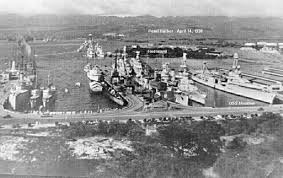Remembering the Important Events of Our Nation
I recently had the pleasure of doing a presentation at a local middle/high school. I spoke about Civil Air Patrol, its history and the role it plays in our country today. I began my presentation with a question. It went something like this:
"The Civil Air Patrol was founded on December 1, 1941. Who knows why this date is significant?" Sadly, out of the four sessions with these teens, only four could tell me the correct answer. "It was six days prior to the bombing of Pearl Harbor by the Japanese during the start of World War II." I was so surprised at how many students didn't know that!
As a homeschooler, I want my kids to embrace our country's rich military history and the fight for independence and liberty that we still battle today in many ways.
- December 17, 1903--The Wright Brothers made their first powered flight.
- December 10, 1906--President Theodore Roosevelt wins Nobel Peace Prize for helping negotiate the end of the Russo-Japanese war
- December 6, 1907--361 people killed in a coal mine exposion in Monongah, West Virigina
- December 1, 1913--Henry Ford developed the modern assembly line
- December 12, 1937--A Japanese attack was made on the United States Navy gunboat USS Panay while it was anchored in the Yangtze River outside of Nanjing; killing three Americans.
- December 7, 1941--Attack on Pearl Harbor; The Empire of Japan declares war on the United States and Britain, attacking the U.S. Nvala bases in Pearl Harbor Hawaii. The event resulted in the sinking of 6 U.S. ships, destroying 188 aircraft, wounding 1,247 and killing 2,402 Americans.

(C) Pearlharborsurvivorsonline.org
- December 8, 1941--The United States declares war on the Empire of Japan signifying the U.S. entry into World War II.
- December 11, 1941--The United States declares war on Germany and italy after both nations declare war on the U.S.
- December 16, 1944--The Battle of the Bulge, Germany's final major offensive of World War II, began; being the deadliest military battle for the United States during World War II.
- December 6, 1946--President Truman signed Executive Order 9808; establishing the President's Committee on Civil Rights.
- December 1, 1955--Rosa Parks was arrested in Montgomery, Alabama after refusing to give up her bus seat to a white passenger, inciting the 386-day Montgomery Bus Boycott led by Reverend Dr. Martin Luther King, Jr.
- December 5, 1955--The American Federation of Labor and Congress of Industrial Organizations merged into the AFL-CIO, becoming the largest labor union in the United States.
- December 2, 1957--The Shippingport Atomic Power Station, the first commercial nuclear power plant, went into service.
- December 10, 1964--Dr. King became the youngest person ever to be awarded the Nobel Peace Prize, for his 'nonviolent campaign against racism'.
- December 15, 1969--President Nixon announces the withdrawal of 50,000 U.S. troops from Vietnam; reaching the peak level of U.S. troops in Vietnam at 541,000.
- December 14, 1972--Apollo 17 became the final mission of the Apollo program and last human spaceflight to the moon.
How many of these events were you aware of? Do your children know of them? Make a point of including strong United States history not only in your homeschooling, if you teach your children, but in your life in general. Let's pass on the knowledge of our country's history as tangible events that we should be proud, honored and grateful for!
Blessings!
- December 17, 1903--The Wright Brothers made their first powered flight.
- December 10, 1906--President Theodore Roosevelt wins Nobel Peace Prize for helping negotiate the end of the Russo-Japanese war
- December 6, 1907--361 people killed in a coal mine exposion in Monongah, West Virigina
- December 1, 1913--Henry Ford developed the modern assembly line
- December 12, 1937--A Japanese attack was made on the United States Navy gunboat USS Panay while it was anchored in the Yangtze River outside of Nanjing; killing three Americans.
- December 7, 1941--Attack on Pearl Harbor; The Empire of Japan declares war on the United States and Britain, attacking the U.S. Nvala bases in Pearl Harbor Hawaii. The event resulted in the sinking of 6 U.S. ships, destroying 188 aircraft, wounding 1,247 and killing 2,402 Americans.
| (C) Pearlharborsurvivorsonline.org |
- December 8, 1941--The United States declares war on the Empire of Japan signifying the U.S. entry into World War II.
- December 11, 1941--The United States declares war on Germany and italy after both nations declare war on the U.S.
- December 16, 1944--The Battle of the Bulge, Germany's final major offensive of World War II, began; being the deadliest military battle for the United States during World War II.
- December 6, 1946--President Truman signed Executive Order 9808; establishing the President's Committee on Civil Rights.
- December 1, 1955--Rosa Parks was arrested in Montgomery, Alabama after refusing to give up her bus seat to a white passenger, inciting the 386-day Montgomery Bus Boycott led by Reverend Dr. Martin Luther King, Jr.
- December 5, 1955--The American Federation of Labor and Congress of Industrial Organizations merged into the AFL-CIO, becoming the largest labor union in the United States.
- December 2, 1957--The Shippingport Atomic Power Station, the first commercial nuclear power plant, went into service.
- December 10, 1964--Dr. King became the youngest person ever to be awarded the Nobel Peace Prize, for his 'nonviolent campaign against racism'.
- December 15, 1969--President Nixon announces the withdrawal of 50,000 U.S. troops from Vietnam; reaching the peak level of U.S. troops in Vietnam at 541,000.
- December 14, 1972--Apollo 17 became the final mission of the Apollo program and last human spaceflight to the moon.


No comments:
Post a Comment